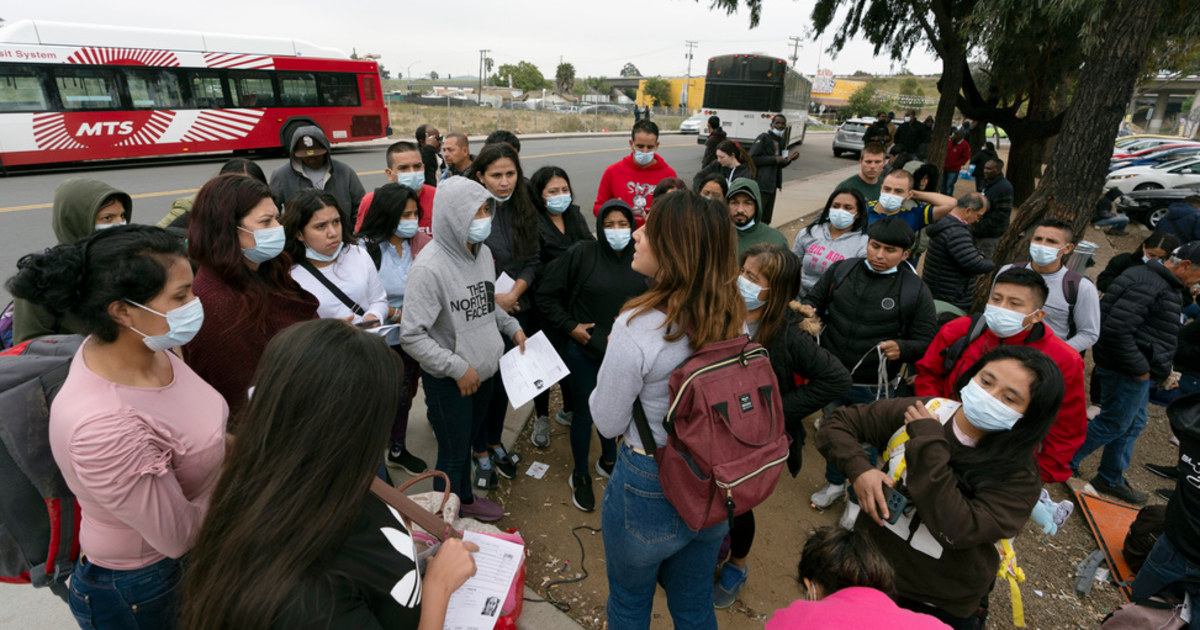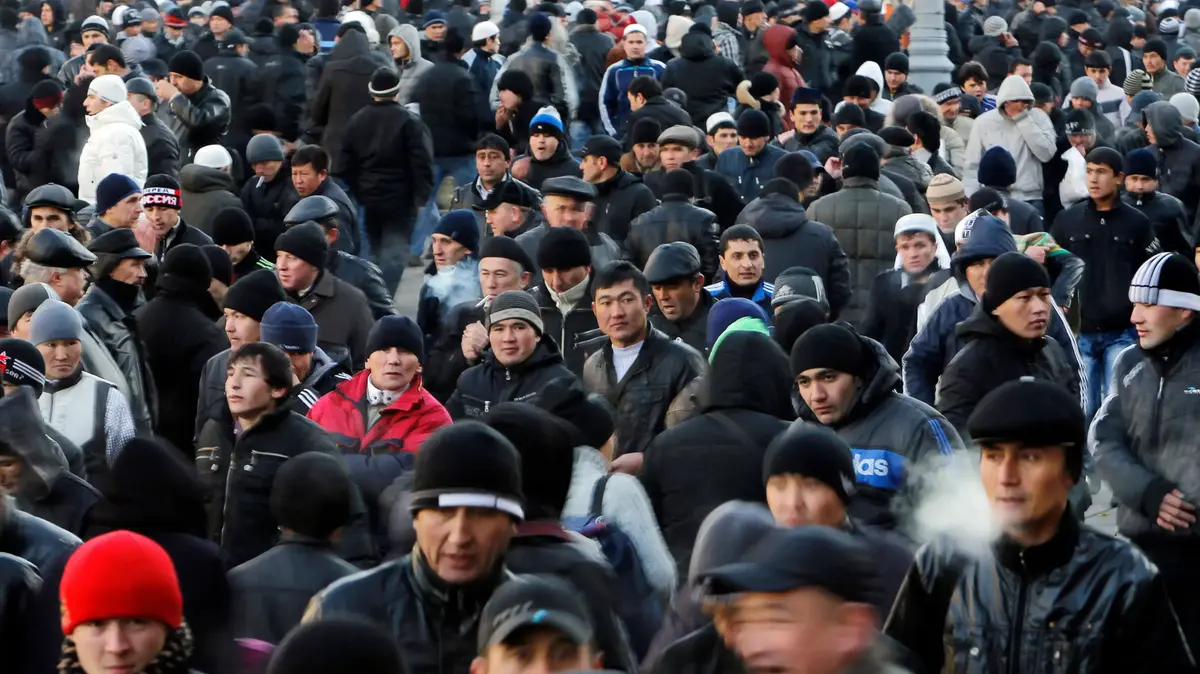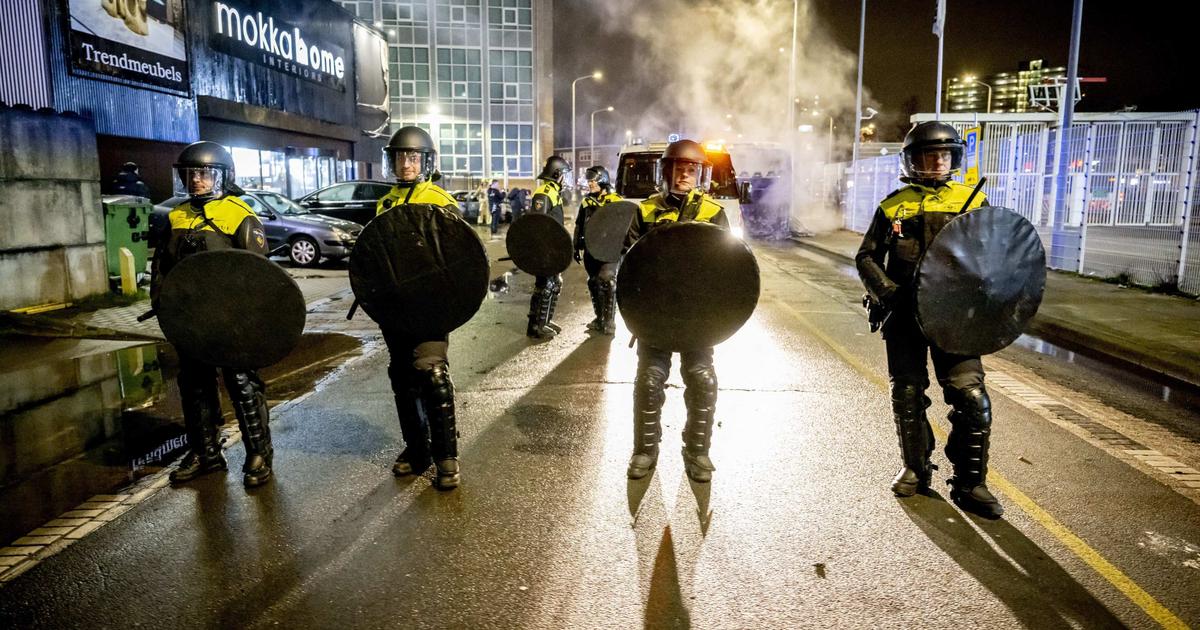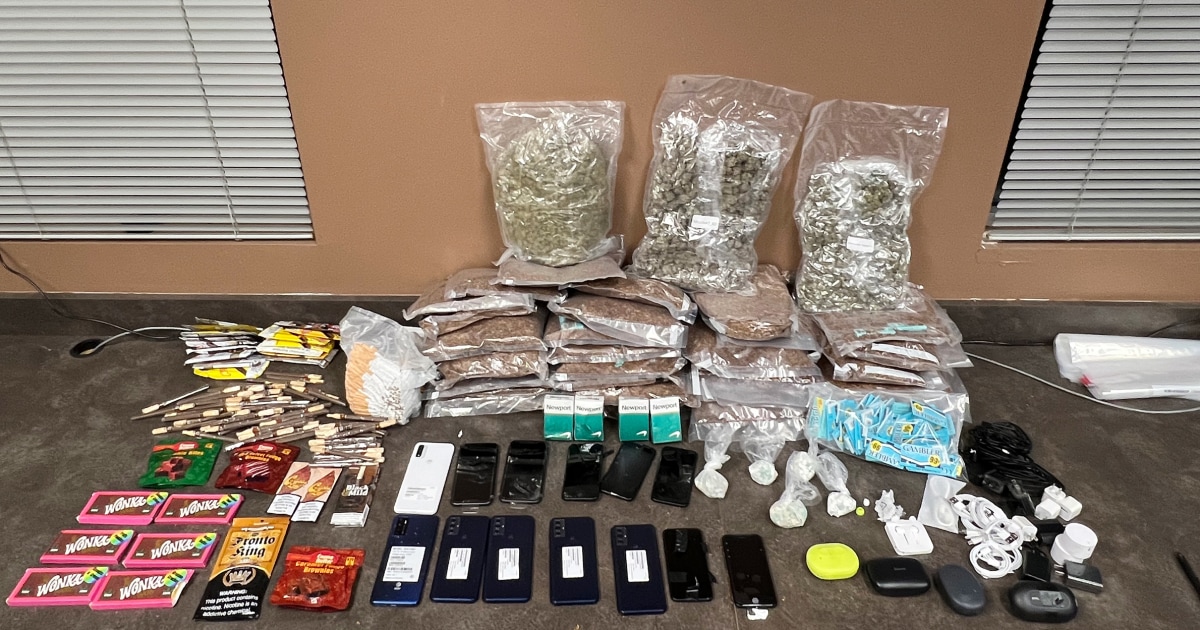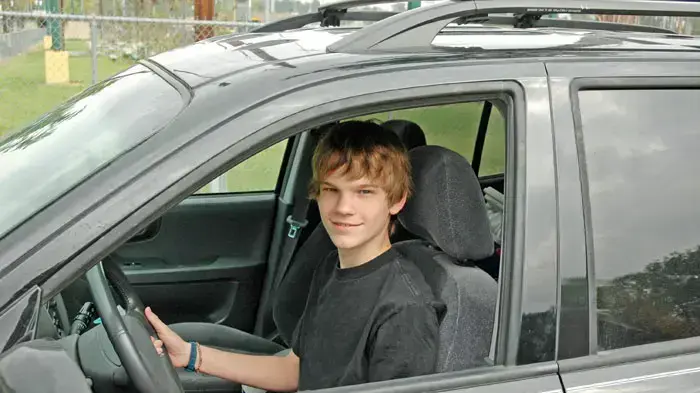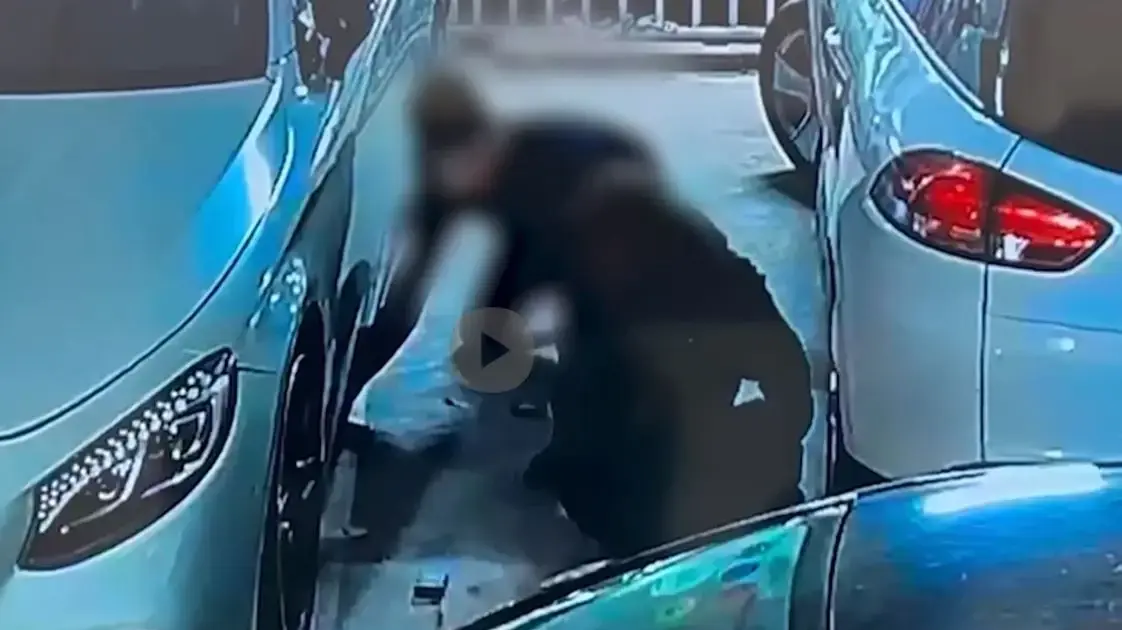news
News in Israel
Society and welfare
Young Ethiopians suffer from over-enforcement - more than three times as many criminal arrests
The auditor's report examined the conduct of law enforcement officials against Ethiopians, and revealed that permit policing is carried out especially among boys, despite the plan to strengthen trust in the police.
For example, the rate of arrests of boys from the community is 5.6% - 3.3 times their rate in the population.
"You can just sit and a cop beats you"
Tags
Matanyahu Engelman
State Comptroller
Ethiopians
police
Ethiopians
Yael Friedson
Wednesday, 04 August 2021, 11:00 Updated: 11:01
Share on Facebook
Share on WhatsApp
Share on general
Share on general
Share on Twitter
Share on Email
0 comments
Bennett in a message to Iran: "Sit peacefully in Tehran and ignite from there ...
A strange method of eating pizza
Food and zodiac signs
The right amount of toothpaste to use
Clothes Dryer
The secret of popcorn in cinema
Is this a record of Bigfoot crossing a river?
A hollow tree trunk has become a beehive, due to the fear that the tree ...
Bennett in response to the attack on the ship: Iran is responsible, know ...
Teacher Yotam Okon accused of raping his 12-year-old student: ...
The Belarusian runner, Christina Tsimanuskaya, in the field ...
Pasta chips
In the video: Damas commands that he was violently attacked by police on the auditor's report on the conduct of law enforcement officials against Ethiopians (Photography and production: State Comptroller's Office)
The rates of policing and enforcement against Ethiopians remain much higher than among the general population, according to the State Comptroller's report published today (Wednesday). This is five years after the beginning of the police program to strengthen trust between Ethiopians and the police, and despite raising the issue on the public agenda. In addition, the report shows that the degree of trust of Ethiopians in the police remains low.
The auditor's report examined the conduct of law enforcement officials vis-à-vis Ethiopians and revealed that despite efforts being made on the issue, there is still over-policing of the Ethiopian population, especially among boys and children from the community.
The population of Ethiopian origin in Israel is about 155,300, and its share is about 1.7% of the population of Israel.
In 2015, following the publication of a video showing two policemen beating Damas Fikada, a uniformed soldier from the Ethiopian community, the crisis of confidence of the community's members in the state authorities intensified, and this was reflected in a widespread wave of protests by Ethiopians against the police.
The protesters' allegations revolved around institutional racism, violence and discriminatory enforcement by the police as well as the incompetence of the law enforcement system.
More on Walla!
Ethiopian sues Kiryat Motzkin rabbi for NIS 500,000: "Doubted her Judaism"
To the full article
More on Walla!
Treating locusts in Ethiopia, and lighting candles in prison: What is Deputy Minister Gadi Yabarkan doing?
Thousands at rallies marking the anniversary of Salomon Taka's killing: "We are all human"
The most powerful and powerful Internet in Israel with a special and unprecedented offer
Bennett in a message to Iran: "Sit peacefully in Tehran and ignite from there ...
A strange method of eating pizza
Food and zodiac signs
The right amount of toothpaste to use
Clothes Dryer
The secret of popcorn in cinema
Is this a record of Bigfoot crossing a river?
A hollow tree trunk has become a beehive, due to the fear that the tree ...
Bennett in response to the attack on the ship: Iran is responsible, know ...
Teacher Yotam Okon accused of raping his 12-year-old student: ...
The Belarusian runner, Christina Tsimanuskaya, in the field ...
Pasta chips
In the video: Damas commands that he was violently attacked by police on the auditor's report on the conduct of law enforcement officials against Ethiopians (Photography and production: State Comptroller's Office)
Following a wave of protests, in 2015 the police formulated a plan to strengthen trust between the police and Ethiopians.
The program included the participation of local communities, cultural training for police officers, recruitment of Ethiopian personnel and activities in the field of investigation and law.
In 2016, the government decided to set up an inter-ministerial team to formulate an action plan to deal with the phenomenon of racism against Ethiopians.
In early 2019, a wave of protests by Ethiopians resumed following two deaths of Yehuda Biadga and Solomon Taka by police.
Gaps in the IDF as well, and the possibility of getting out of the crime circle
Detention rate:
The detention rate of Ethiopian boys is 5.6% - 3.3 times their share of the population. The rate of arrests of adults of Ethiopian descent is 4.3% - 2.5 times their general rate in the population.
Number of investigation files:
The rate of investigation files of Ethiopian children in 2019 is 3.8 times greater than their rate in the population, which stands at 1.7%. This makes it difficult for young people to enlist in the army, who are sometimes not even aware that there are open cases against them and that they can act to close them.
The gaps in the army:
The army also has large gaps between Ethiopians and other soldiers: In 2019, the rate of incarceration among Ethiopians among all IDF soldiers is significantly larger than their share of the population and stood at 11.7%. .
Equality of opportunity in getting out of the cycle of crime?
In the years 2019-2015, the proportion of boys among Ethiopians who were referred to an alternative procedure for the criminal procedure was 10% lower than the proportion of minors who were referred to this process from the general population.
Goals versus reality
One of the achievements of the inter-ministerial team was the pardon outline for deleting a criminal record of Ethiopian boys by the President and the Minister of Justice, but even on this issue the achievements are meager.
From 2018 to May 2021, only 140 requests for deletion of a criminal record were received.
Only 48 requests were answered in the affirmative.
One of the goals that the police have set for themselves is in 2019 in a survey of positions that it will conduct, 30% of Ethiopians will answer that they trust the police.
In practice, only 13% of Ethiopians said they believed the police, compared to 56% of the population who believed in the police.
To date, there is not a single factor in the police that examines the conduct of the police (Photo: Dana Yarkatzi)
It should be noted that the state has allocated NIS 11 million a year for an array of NCOs designated for the Ethiopian community, but the concept of operation, targets for achievement, metrics and a unique control mechanism for the NCOs designated for the Ethiopian community have not yet been formulated. The Comptroller pointed out that to date there is not a single factor in the police that examines at a glance the range of aspects related to the conduct of the police vis-à-vis Ethiopians.
The public participation procedure conducted by the Comptroller's Office revealed that Ethiopians' feelings of insecurity and trust in the police are based on their perception that law enforcement is working against them and not on their behalf, and that racial discrimination exists. In this context, it emerged that the police had instilled fear among Ethiopians, in the context of significant extraordinary violent incidents, and these reflected in their opinion profiling and over-policing. Participants noted that according to their feeling the police cause friction with them for no real reason but on the basis of appearance: a dark-skinned person is too suspicious.
"You can just sit in the park, sit with a friend or go down with a cigarette and a policeman folds you and gives you blows," said one of the participants. Another participant testified about an incident that happened to him: "I am a major coming back after a full week at the base and leaving, the mistake I made was that I took off my top shirt with my ranks and went out to throw garbage and what happens is the car passes, I tell the policeman I live here, 'Give me a certificate', I tell him I'm without a certificate, now I're back from the base, if you want I will go up to get you a certificate, he says 'No', he's in the car, heavy rain outside and the man starts Find out details about me on the computer that he will return inside the mobile. "
State Comptroller Matanyahu Engelman summed up the report and wrote "Enforcement agencies must work to eradicate racism, permit policing and profiling, act transparently with cooperation and knowledge sharing, for an equal, fair and impartial attitude on the part of law enforcement agencies,In order for Israeli citizens of Ethiopian descent to feel equal among equals. "
Share on Facebook
Share on WhatsApp
Share on general
Share on general
Share on Twitter
Share on Email
0 comments


